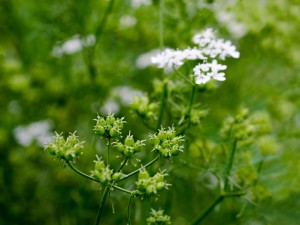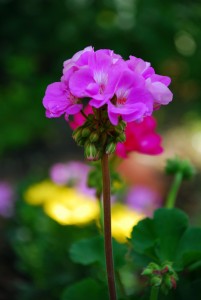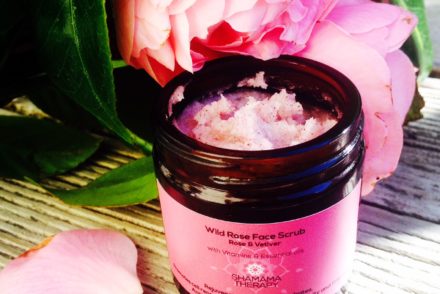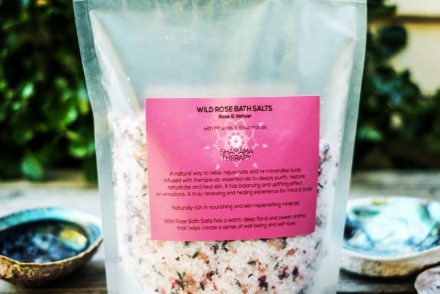“My elders have said to me
that the trees are the teachers of the law.
As I grow less ignorant
I begin to understand what they mean”
– Brooke Medicine Eagle
From the beginning we have been surrounded by the presence of plants. Plants, animals and people have coevolved over a long period of time. Their relationship reflect matualistic interdependencies that cannot be viewed in isolation from one another.
What is Aromatherapy?
Aromatherapy is an Art of using naturally extracted aromatic essence from flowers, bark, stems, leaves, roots or other parts of a plant to balance, harmonise and promote the health of the BODY, MIND and SOUL. It enhances psychological and physical well-being.
The inhaled aroma from these essential oils is widely believed to stimulate brain function. Essential oils can also be absorbed through the skin, where they travel through the bloodstream and can promote whole-body healing.
Physical, mental, emotional and spiritual benefits of aromatherapy and massage
Aromatherapy can help people in many ways. It is a natural way to improve your health and calm your mind. Aromatherapy is not limited to cure the physical illness, but embraces the spiritual wellbeing. Aromatherapy can:
-
Enhance mood and general feeling of well-being.
-
Reduce stress
Stress is multidimentional syndrom because it involves mind, body and emotions. The success of aromatherapy comes from its multidimentional holistic approach by treating and looking at a person as a Whole, addressing physical body, mind and soul. Aromatherapy utilises the pharmacological, psychotherapeutic and metaphysical properties of essential oils.
A Japanese study found that inhaling essential oils can modulate your sympathetic nervous system activity. Certain oils were found to be stimulating, while others were found to be calming. Let’s have a look at some of the studies:
– Black pepper, fennel, and grapefruit oil caused a 1.5-to 2.5-fold increase in sympathetic nervous system activity (as measured by an increase in systolic blood pressure)
– Rose and patchouli oil resulted in a 40 percent decrease in sympathetic nervous system activity
– Pepper oil induced a 1.7-fold increase in plasma adrenaline concentration, while rose oil caused adrenaline to drop by 30 percent
– Other oils have been shown to measurably decrease stress hormones—inhaling lavender and rosemary were shown to reduce cortisol levels.
-
Improve blood and lymphatic circulation.
Essential oils affect the circulatory system by dilating the blood vessels, thereby allowing the blood to flow. Essential oils used for poor circulation will stimulate blood flow in the veins, lymph movement in the lymphatic system and help shift the toxin build up throughout your body.
Recommended oils for stimulating circulation locally to the area where they are applied include Nutmeg, Cinnamom, Clove, Black Pepper, Ginger, Thyme and Rosemary. Myrtle, Lemon and Cypress have been used to strengthen and dilate capillaries and increase circulation. Helichrysum, Clove and citrus oils are natural blood thinners, balancing the viscosity or thickness of the blood.
-
Strengthen the immune system, resistance to disease and combat infections.
Research has shown that 45 minutes of massage increases your body’s white blood cells, therefore strengthening your immune response and reducing inflammation.
Essential oils contain each of the plant’s healing nutrients including trace minerals, vitamins, hormones, amino acid precursors and other components. They give the plant the ability to destroy infections, stave off infestations, initiate and maintain growth and repair structural damage. When essential oils are applied to human skin, they carry the same healing force as they do to the plant.
Antibacterial effects of essential oils such as peppermint oil, tea tree oil, thyme oil can provide an effective antiseptic solution against oral pathogens.
The best method of using the essential oils for the ailments of respiratory tract is by chest and back massage, inhalations, compresses, diffusers and burners. Essential oils have well documented antimicrobial, antispasmodic, antitussive, demulcent, expectorant and immunostimulating properties. Clove and oregano are one of many essential oils in which no bacteria, virus or fungi can live.
In a study published in June of 2014, researchers reported on the anti-inflammatory effects of lavender essential oil as a treatment for asthma.
-
Help to deal with different emotions, such as anxiety, depression and grief.
Lavender is used with positive effect in the treatment of anxie ty disorders and related conditions. Lavender improved associated symptoms such as restlessness, disturbed sleep, and somatic complaints and has a beneficial influence on general well-being and quality of life. Onother study on lavender essential oil revealed that lavender can cause significant decreases of blood pressure, heart rate, and skin temperature, which indicated a decrease of autonomic arousal.
ty disorders and related conditions. Lavender improved associated symptoms such as restlessness, disturbed sleep, and somatic complaints and has a beneficial influence on general well-being and quality of life. Onother study on lavender essential oil revealed that lavender can cause significant decreases of blood pressure, heart rate, and skin temperature, which indicated a decrease of autonomic arousal.
Aromatherapy massage exerts positive effects on anxiety and self-esteem.
Aromatherapy treatments have a wonderful energising, uplifting effect on the nervous system and help lift the Spirit. Essential oils can help balance, relax and restore the nervous system. Inhalation aromatherapy with lavender aroma has ben proved to reduce anxiety in patients with myocardial infarction.
-
Soothe the tension and pain of the muscles, improve flexibility, mobility and co-ordination.
Essential oils have anti-inflammatory, rubefacient, analgesic, antirheumatic and detoxifying properties that can provide considerable amount of pain relief. Such oil can relieve local inflammation, so the swelling is reduced. Some essential oils will bring warmth to the tissue. Detoxifiers cleanse and purify the bloodstream and restore healthier functioning.
- Antiseptic properties
- Help eliminate waste – Detoxification
- Reducing inflammation
- Regulating sebum production
- Reducing stress
- Improve muscle tone and blood circulation
- Stimulate the growth of new cells
Essential oils have antiseptic, inti-inflammatory, antipruritic, astringent, cicatrisant, demulcent (reducing itching), fungicidal and vulnerary properties. Therefore essential oils can be very useful in skin care, because they are able to address skin conditions on variety of levels.
A comparative study of tea-tree oil versus benzoylperoxide in the treatment of acne showed that both had a significant effect in ameliorating the patients’ acne by reducing the number of inflamed and non-inflamed lesions (open and closed comedones). The onset of action in the case of tea-tree oil was slower. Encouragingly, fewer side effects were experienced by patients treated with tea-tree oil.
Essential oils and aromatherapy has proven to be beneficial for the managment of eczema and dermatitis.
-
Encourage restful sleep.
Human studies that were published between 1990 to 2012, suggested positive effect of inhaled essential oils on sleep. No adverse events were reported.
-
Improve digestion
Massage with essential oils to the lower back and abdomen, especially over the dorsal and lumbar areas,  can help the colon work more comfortably and naturally. Local compresses over the stomach are also very usuful. And it is important to remember that the first act of digestion is olfaction. The aroma of the food stimulates the secretion of saliva and digestive juices.
can help the colon work more comfortably and naturally. Local compresses over the stomach are also very usuful. And it is important to remember that the first act of digestion is olfaction. The aroma of the food stimulates the secretion of saliva and digestive juices.
Because many complaints of the digestive tract result from stress (Autonomic Nervous System), essential oils and their sedative and calming nervous system properties seem to be a perfect solution.
Infection can be the cause of many digestive problems. Hypothesis is that the digestive properties of a particular herb may be linked, at least in part, to the herb’s antibacterial action. Essential oils and herbal extracts have an advantage over conventional antibiotics since they may contain several antibacterial compounds that act in different ways, so that it would be more difficult for bacteria to develop resistance
Aromatherapy Stimulates all the senses and help increase sensory awareness through touch, music and smell experiences.
The Science of Smell
Merely breathing in the fragrance of essential oils is a powerful healer. Inhalation of essential oils can communicate signals to the olfactory system and stimulate the brain to exert neurotransmitters (e.g. serotonin and dopamine) thereby furt her regulating mood.
her regulating mood.
“Our olfactory receptors are directly connected to the limbic system, the most ancient and primitive part of the brain, which is thought to be the seat of emotion. Smell sensations are relayed to the cortex, where ‘cognitive’ recognition occurs, only after the deepest parts of our brains have been stimulated. Thus, by the time we correctly name a particular scent as, for example, ‘vanilla,’ the scent has already activated the limbic system, triggering more deep-seated emotional responses.”
Touch
“Often the hands will solve a mystery that the intellect has struggled with in vain.”
― C.G. Jung
Massage therapy is based on the touch. Massage is sharing the touch. It penetrates deeper than the skin, deeper even than the muscles and bones – a good massage can penetrate our being.
“Touch is a basic behavioral need, in much the same way as breathing is a basic physical need. When the need for touch remains unsatisfied abnormal behavior will result”
Touch makes in a body a series of reactions at the biochemical level. It stimulates the release of oxytocin(OT) as one study shown, a hormone thought to be a primary component of many social, emotional, and behavioral human functions. OT is known to facilitate social bonding, and touch in humans appears to sustain social bonds and to increase cooperative behaviors.
The release of oxytocin during physical massage may add to the number of benefits that massage can offer. Massage may promote prosocial behaviors such as trustworthiness, generosity and empathy.
How touch can help? One study investigated the effects of sleep and touch therapy accompanied by music and aromatherapy on the symptoms of fibromyalgia in women. Common symptoms include: pain, morning fatigue, restless sleep, sleeplessness, and depression. The Touch-Music-Aroma and Sleep-Music-Aroma interventions reduced with statistically significant change FMS symptoms in patients and were effective in decreasing the level of depression in women participating in the study.
Music
Some therapist/clients will chose to work in silence. Others, like me like to benefit from therapeutic music.
Aromatherapy for healing the Spirit.
Aromatherapy and Massage is a way to rest in our source, where our bodies and minds and personalities and feelings come into harmony. That is, we are no longer divided. This harmony may not immediately arise in its deepest possible way, but this is where the journey begins.
Aromatherapy is a continuous exchange, process of giving and receiving. Aromatherapy allows individual to find his/her inner harmony and peace.
I would encourage you to look at aromatherapy as a way to investigate. A way of investigating for yourself – in your own body, in your own mind, upon your own experience. That you start to relinquish control and allow everything to be as it is. When you allow your experience to be exactly as it is without trying to change it.
I’ve witnessed clients change – the light in their eyes after the massage, the way they hold themselves, the tone of their voice, their level of self-awareness, confidence, purpose, and clarity. And that is for me the most valuable proof that aromatherapy really works.
Bibliography
Tisserand R. 1977 The Art of Aromatherapy The C. W. Daniel Company Limited, Great Britain
Ueno-Iio T1, Shibakura M2, Yokota K1, Aoe M1, Hyoda T1, Shinohata R1, Kanehiro A3, Tanimoto M3, Kataoka M1., “Lavender essential oil inhalation suppresses allergic airway inflammation and mucous cell hyperplasia in a murine model of asthma,” Life Sci.,” June 2014, PMID: 24909715







